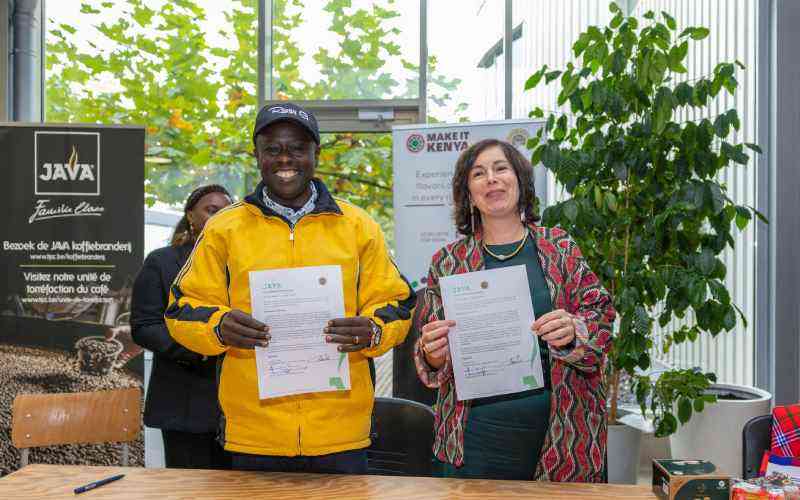×
The Standard e-Paper
Join Thousands Daily

It is a sigh of relief for coffee farmers across the country after Deputy President Rigathi Gachagua brokered a deal that allows for export of 10, 000 bags of coffee.
The produce will be exported to one of the world's largest coffee firms, The Java Coffee Company.